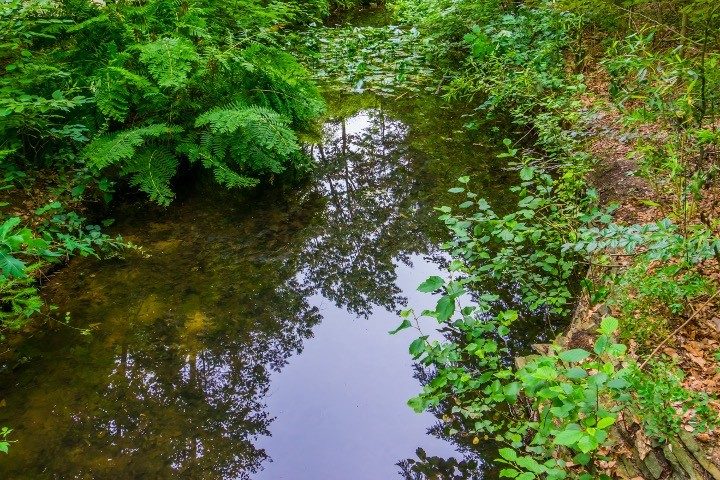
Republican governors from 25 states sent a letter to the Biden administration on Monday stating their opposition to Biden’s rule regarding the Clean Water Act (CWA) and the revised definition of “Waters of the United States” (WOTUS) that the Environmental Protection Agency (EPA) will enforce. They are seeking a delay in the rule’s implementation until the Supreme Court of the United States (SCOTUS) issues a ruling in Sackett v. EPA in June.
The revised WOTUS rule, released by the EPA on Dec. 30, “restores essential water protections that were in place prior to 2015 under the Clean Water Act for traditional navigable waters, the territorial seas, interstate waters, as well as upstream water resources that significantly affect those waters.” The rule was scaled back under the Trump administration, which triggered lawsuits from environmental groups.
“When Congress passed the Clean Water Act 50 years ago, it recognized that protecting our waters is essential to ensuring healthy communities and a thriving economy,” said EPA Administrator Michael S. Regan in a press release. “Following extensive stakeholder engagement, and building on what we’ve learned from previous rules, EPA is working to deliver a durable definition of WOTUS that safeguards our nation’s waters, strengthens economic opportunity, and protects people’s health while providing greater certainty for farmers, ranchers, and landowners.”
The governors disagree with the “durable definition” of WOTUS, stating in their letter:
The substance of the rule hinders State governments as we seek to give clarity and consistency to businesses, farms, and individuals regarding the regulatory framework for water. The broad definitions used in the 514-page document only add to the confusing and complicated history of WOTUS. In fact, it appears that the EPA is seeking to regulate private ponds, ditches, and other small water features.
The new WOTUS rule creates significant additional federal regulatory overreach regarding states’ public and private lands, and allows the EPA to regulate ditches, low spots, and temporary drainages on agricultural land. Under this rule, many waters will need a federal jurisdictional review to determine whether or not they are subject to the rule, resulting in uncertainty, delays, and additional costs for property owners.
The governors wrote that they “call into question the timing and necessity of the rule with the Court’s upcoming Sackett decision,” which will determine if the Clean Water Act regulates all wetlands as “waters of the United States.” “That opinion could significantly impact the final rule and its implementation. To change the rule multiple times in six months is an inefficient and wasteful use of state and federal resources.”
The Center Square reported that “environmental groups praised the Biden administration’s revised WOTUS rule”:
“This comes at a time when we’re seeing unprecedented attacks on federal clean water protections by polluters and their allies,” Jon Devine, director of federal water policy for the Natural Resources Defense Council, said in a statement last month. “While the nation still has significant work to do to fully protect important waters, it’s encouraging to see the country taking a step in the right direction to protect the waters we need for everyone’s health and the environment.”
But should those “important waters” that the environmentalists and the EPA seek to protect include property that has no surface water connection to any body of water? That’s what is at stake in the Sackett case.
The question presented in the case to SCOTUS is as follows:
Petitioners Michael and Chantell Sackett own a vacant lot in a mostly built-out residential subdivision near Priest Lake, Idaho. The lot has no surface water connection to any body of water. In April, 2007, with local permits in hand, the Sacketts began building a family home. But later that year, Respondent Environmental Protection Agency sent them an administrative compliance order determining that their home construction violated the Clean Water Act because their lot contains wetlands that qualify as regulated “navigable waters.”
Hopefully SCOTUS will rule against the EPA, which has gone from a supposedly science-based (though wholly unconstitutional) government agency to one for which “science” is whatever they say it is, with an agenda that adheres to leftist green energy solutions by telling huge lies, citing junk science, and generating a torrent of liberty-destroying regulation.
The letter was signed by Idaho Gov. Brad Little, Alabama Gov. Kay Ivey, Alaska Gov. Mike Dunleavy, Arkansas Gov. Sarah Sanders, Florida Gov. Ron DeSantis, Georgia Gov. Brian Kemp, Indiana Gov. Eric Holcomb, Iowa Gov. Kim Reynolds, Mississippi Gov. Tate Reeves, Missouri Gov. Mike Parson, Montana Gov. Greg Gianforte, Nebraska Gov. Jim Pillen, Nevada Gov. Joe Lombardo, New Hampshire Gov. Chris Sununu, North Dakota Gov. Doug Burgum, Ohio Gov. Mike DeWine, Oklahoma Gov. Kevin Stitt, South Carolina Gov. Henry McMaster, South Dakota Gov. Kristi Noem, Tennessee Gov. Bill Lee, Texas Gov. Greg Abbott, Utah Gov. Spencer Cox, Virginia Gov. Glenn Youngkin, West Virginia Gov. Jim Justice, and Wyoming Gov. Mark Gordon.



